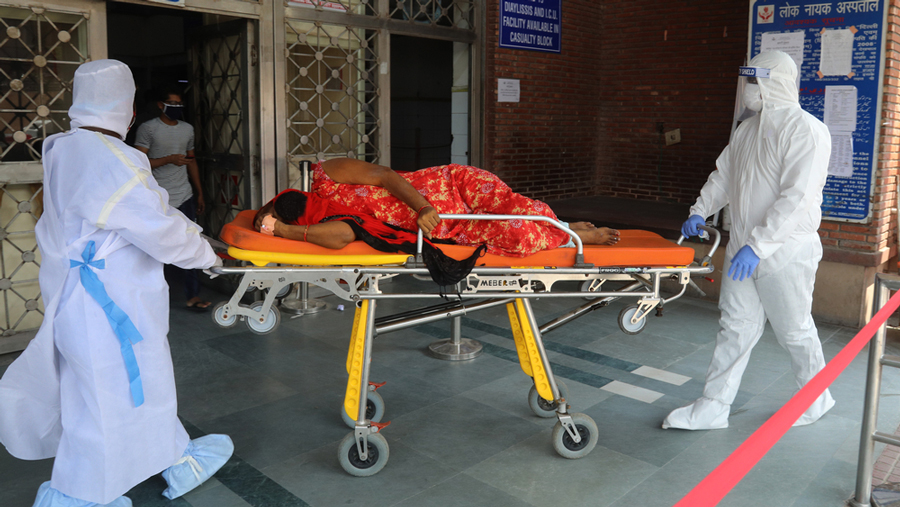Being unprepared to tackle a health crisis could be akin to losing half the battle. This certainly seems to be true in the case of India. An Oxfam report has found that India spent just 4 per cent of its budget on health going into the pandemic, with its expenditure being the fourth lowest in the world. Making matters worse are findings that even with caps imposed by states on hospital expenditures on Covid-19 treatment, around 80 per cent of Indian families would face financial ruin if just one person had to get treated. It becomes clear that there are serious design flaws in policies related to health expenditure in the populous country.
The consequences are alarming. Only half of India’s population can avail of even the most rudimentary health services, and over 70 per cent of health expenses are borne by citizens themselves. Welfare schemes of successive governments have fallen short. The Ayushman Bharat Pradhan Mantri Jan Arogya Yojana, for instance, claims to provide free health coverage to 40 per cent of the Indian population. Yet, even before the pandemic, reports indicated that it had failed to reach the poor, with many states, including those that had the Bharatiya Janata Party in power, showing poor figures for the programme. Insurance companies and hospitals have also cut a sorry figure. Allegations of insurers refusing to bear the full cost of treatment for health conditions, including Covid-19, are not uncommon. At the other end of the spectrum is the patients’ inability — also refusal — to pay, forcing hospitals to adopt radical measures to recover costs. These realities dent the claims of healthcare being a universal right. Given that Covid-19 is unlikely to be the last of the pandemics, India must set right its health-GDP ratio. The Danish healthcare system, which is independent of health insurance, has reaped the benefits of substantial investments in public sector hospitals and clinics. Is there a case for India to reassess the policy enthusiasm for the unregulated privatization of healthcare and, in effect, use the reach of the public sector to revolutionize its healthcare infrastructure? The pandemic, after all, demands paradigmatic shifts in policy.











